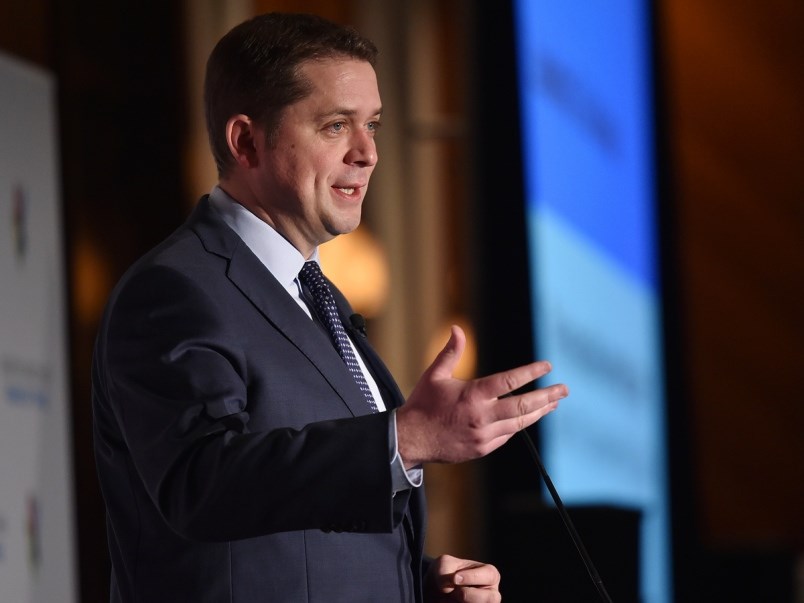The most apt description for an adult Canadian is progressive and conservative. We are socially liberal and fiscally not. We want government in our lives to help us be our best, help those in need, but not help itself to our incomes through taxes.
Which is a pretty open invitation for Andrew Scheer to step in and govern come October.
If only.
Scheer remains a Conservative leader about whom Canadians know precious little and suspect precious much. They worry he will be a cuddlier, dimpled version of the darkest parts of Stephen Harper. He is opaque enough to leave many things he says open to interpretation, a maddening Rorschach test of a politician who has waited a long, long time as leader to define himself. It may cost him the prime ministership.
If you can be judged by the company you keep, Scheer courts at the very least a hung jury. He has countenanced anti-abortion activism to secure support. He has belatedly been clear on racial supremacy as a cancer, but he dithered and wavered before pronouncing a pox on its house. His position on climate change is insufficient in 2019 as an applicant for prime minister, much less in 2023, when his first term would conclude.
It is not too difficult to pick apart Justin Trudeau’s administration, and to be fair, Scheer has been on the case as its nemesis. He has found the weak spots and the sweet spots and been both clear-spoken and on point in the Commons. He pushed the best buttons on the SNC-Lavalin mess, on the small-business tax fiasco and on the proverbial curse of every government in its treatment of veterans. I have seen him speak three times now and interviewed him thrice, and he gets better and better and better.
But it’s in the definition of what he wants for the country, what our place should be in the wider and wobbly world and what he would do to put our house in proper order and manage it, that leaves so many questions only months out. We know Trudeau and have questions, we know Jagmeet Singhand have qualms, but at least they have defined images. It’s hard to remember any possible prime minister so ill-described this proximate to the vote.
If polls are any guide, the election is a toss-up, which suggests splintered government. If you dare to be a fan of a good economy, a Liberal minority would be a walk into Hades. But at this stage, Scheer has heavy lifting ahead to prevent Trudeau, Singh and/or Elizabeth Mayfrom an alliance that would be memorable in all the miserable ways.
His recent spate of keynote speeches put fibre on the flab that had characterized his pronouncements. His most recent and crucial crucible for his party was to press reset on the environment platform. He runs a party that, despite the hysteria of its critics, has historically — if a little long ago — equated conservative values with mitigating the human toll on the planet.
His vision involves tech over taxes, a requirement by big polluters to be big investors in cleaner energy. His headache, though, is the grousing emergence of conservative premiers as environmental menaces and his political opportunism in enlisting them as avatars of the brand. Their brands are not uniformly of assistance, though, and there are two words — no, one word — to describe how: Ford.
The Ontario premier is the anchor under the boat as Scheer wishes to water-ski. As Doug Ford falls and flails, so could he. The desperation move under consideration for Alberta Premier Jason Kenneyto campaign for Scheer in Ontario is rather like letting the Boston Bruins sell Vancouver Canucksseason tickets. Right. Sure. Try it.
The message of conservatism will work well in the suburbs and the countryside, pretty much everywhere but the Atlantic, but Scheer has to place markers and demonstrate growth in cities like Vancouver, Toronto and Montreal, where he has no MPs. A big-city chasm is no way to govern, even if Harper tried.
We have underestimated Scheer every step of the way: as a candidate for MP, as a would-be Speaker of the Commons, certainly as an aspirant for the party helm. We may be doing the same now, but it would help if he’d take his game up to suffocate this skepticism.
Kirk LaPointe is editor-in-chief of Business in Vancouver and vice-president, editorial, at Glacier Media.
Click here for original story.



